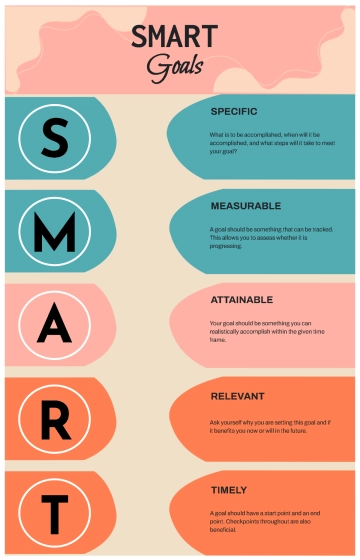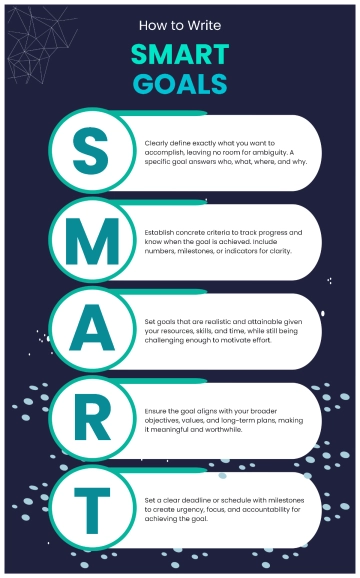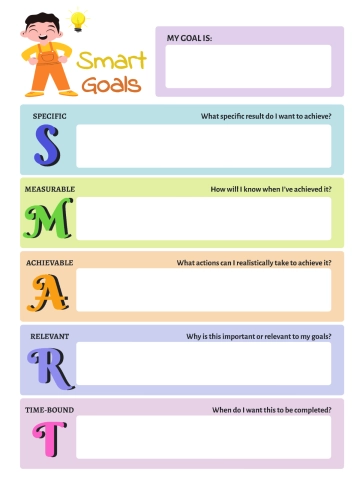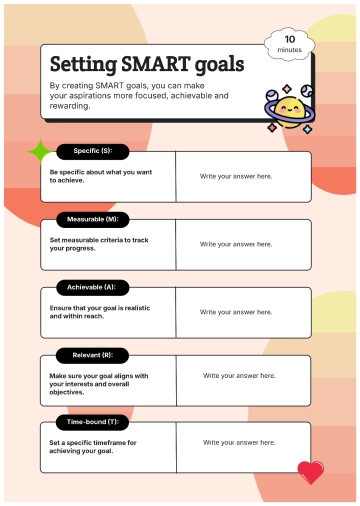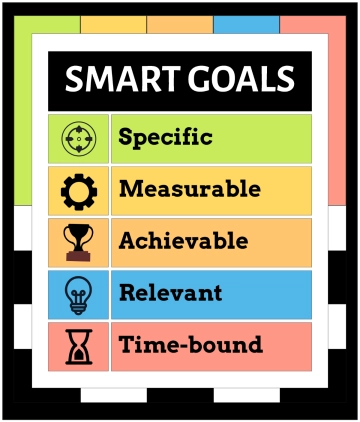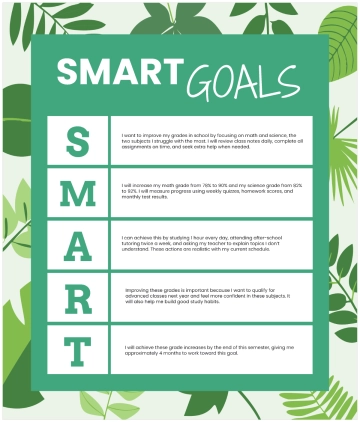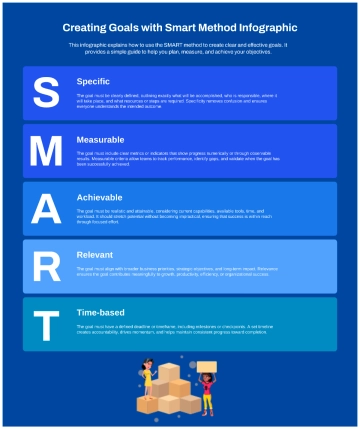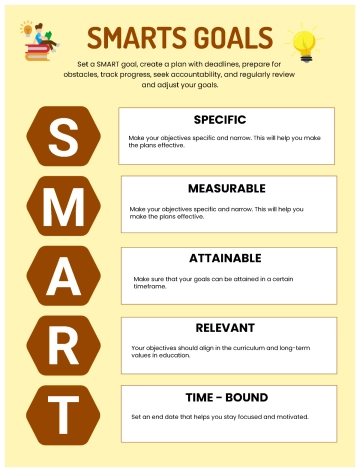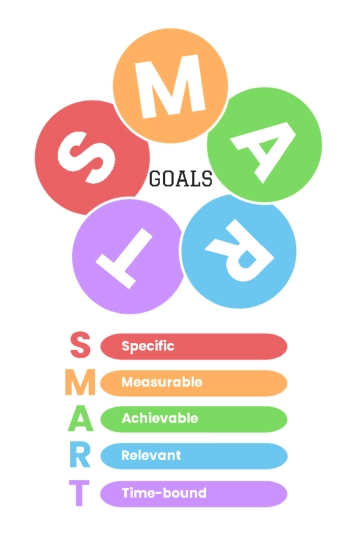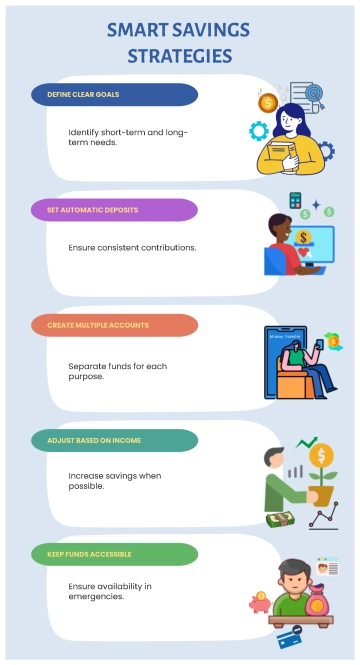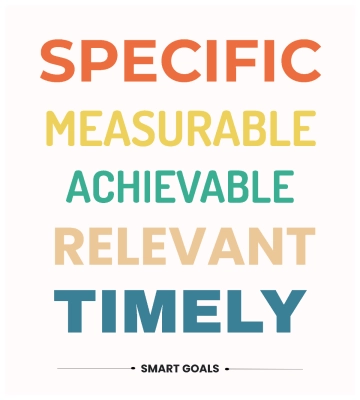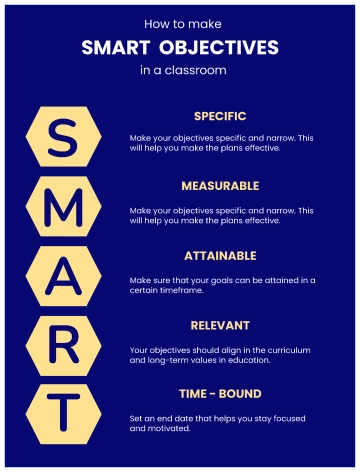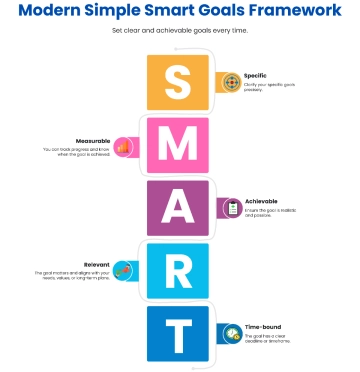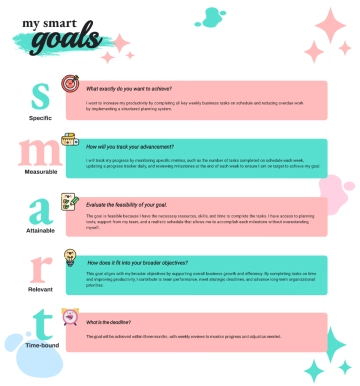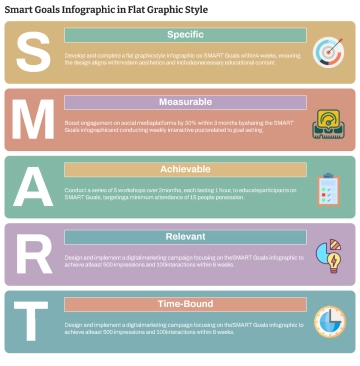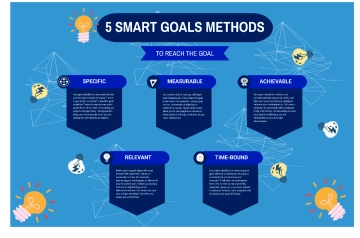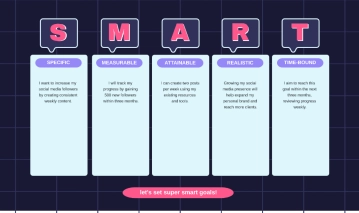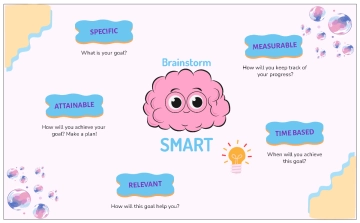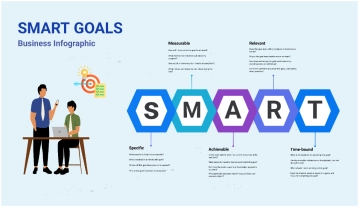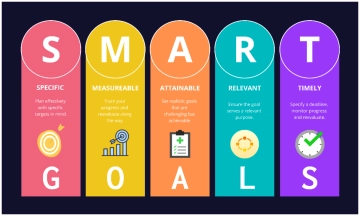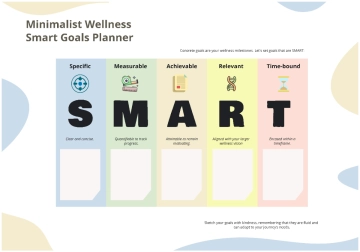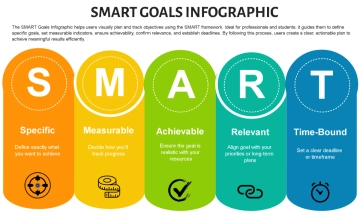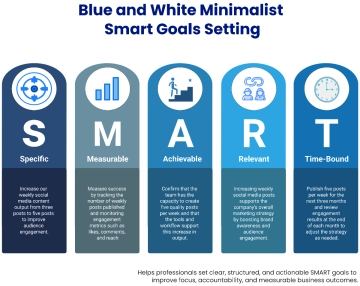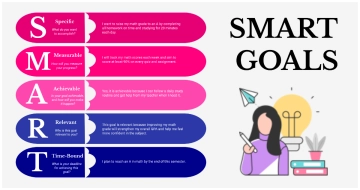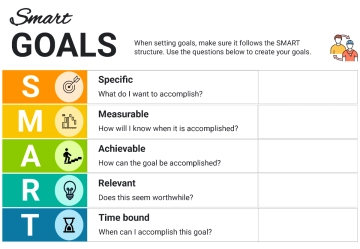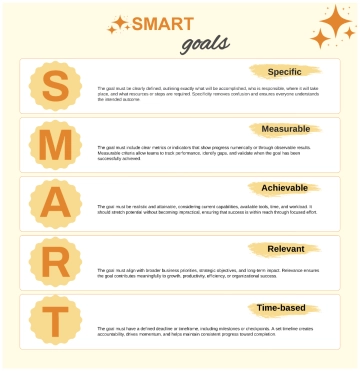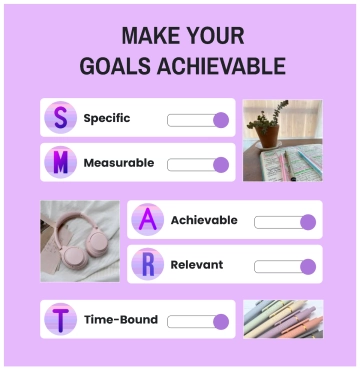Free SMART Goals for Life

Prepared by: [YOUR NAME]
SMART goals are designed to provide a clear, measurable, and achievable framework for personal or professional growth. Below are the key components of a SMART goal:
SMART | Details |
|---|---|
Specific | Define clear and detailed goals. For example, rather than saying "get fit," specify "exercise for 30 minutes, five times a week." |
Measurable | Ensure that you can track your progress. For instance, if your goal is to read more, set a target like "read 20 books by the end of the year." |
Achievable | Set realistic goals based on your current situation. If you aim to learn a new language, perhaps start with "complete a beginner's course in Spanish within 3 months." |
Relevant | Your goals should align with your long-term objectives. For example, if career growth is important to you, a goal could be to "attend a professional development workshop each quarter." |
Time-bound | Set a deadline to create a sense of urgency. Instead of an open-ended goal like "save money," specify "save $5,000 for a vacation by next June." |
Action Plan
Breakdown of Tasks:
Specific Goal: Break the goal into smaller, manageable tasks.
Timeline: Assign a specific timeline to each task.
Resources Needed: Identify the resources (time, money, tools) required to achieve each task.
Execution Strategy:
Prioritization: Prioritize tasks based on importance and deadlines.
Daily/Weekly Schedule: Create a routine that allows you to work consistently toward your goal.
Progress Monitoring: Set up regular checkpoints to assess progress and adjust the plan as necessary.
Accountability
Accountability Partner:
Identify an accountability partner or group who can provide support and motivation.
Schedule regular check-ins to review progress.
Self-Accountability:
Use tools like journals, apps, or calendars to track your daily or weekly progress.
Set reminders or alarms to stay on track.
Feedback Mechanism:
Regularly review feedback from your accountability partner or self-assess to ensure you are on the right path.
Notes
Lessons Learned:
Reflect on what has worked well and what needs improvement.
Adjust your goals or action plan based on these insights.
Challenges Faced:
Document any challenges or obstacles encountered.
Develop strategies to overcome these challenges in the future.
Motivation and Reflection:
Keep a section for motivational quotes or thoughts that inspire you to stay committed to your goals.
Regularly reflect on your progress and celebrate small victories.
Additional Considerations
Risk Management:
Identify potential risks that could derail your goals (e.g., time constraints, financial limitations).
Develop contingency plans to mitigate these risks.
Support System:
List the people, tools, or resources that can provide support as you work towards your goals.
Reach out to your support system regularly to maintain motivation.
Review and Adjust:
Set specific dates for reviewing your overall progress.
Be open to adjusting your goals, timelines, or strategies if necessary.
Conclusion
SMART goals provide a structured approach to achieving personal or professional objectives. By following this framework and including an action plan, accountability measures, and regular reflection, you can increase your chances of success.
- 100% Customizable, free editor
- Access 1 Million+ Templates, photo’s & graphics
- Download or share as a template
- Click and replace photos, graphics, text, backgrounds
- Resize, crop, AI write & more
- Access advanced editor
Plan your life with intention using Template.net’s SMART Goals for Life Template. This comprehensive template is designed to help you set and achieve meaningful personal goals across various aspects of your life. Customizable and editable in our Ai Editor Tool, it allows you to outline specific, measurable, attainable, relevant, and time-bound objectives.
